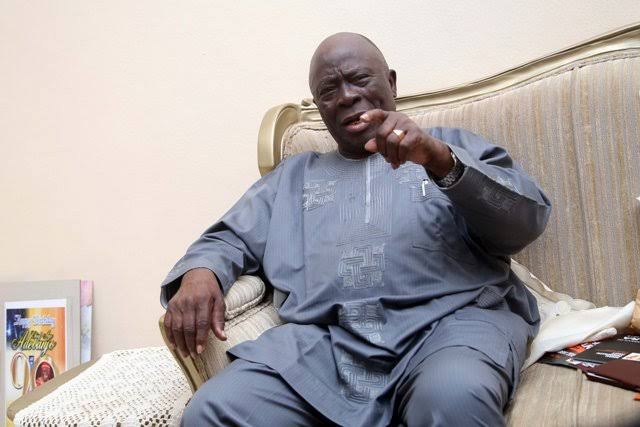Chief Ayo Adebanjo, the revered Afenifere leader and elder statesman, passed away at the age of 96.
A vocal advocate for democracy, federalism, and good governance, he remained a key figure in Nigeria’s political landscape.
Here are ten key things to know about his life and legacy:
- Early life and education
Born in 1928, Ayo Adebanjo hailed from Ogun State, Nigeria. He trained as a lawyer and played an active role in Nigeria’s pre- and post-independence politics.
- Close ally of Obafemi Awolowo
Adebanjo was a devoted disciple of the late Chief Obafemi Awolowo, Nigeria’s foremost Yoruba leader. He played a significant role in the Action Group, Awolowo’s political party.
- Founding member of Afenifere
He was a founding member of Afenifere, a Yoruba socio-political group, and later became its national leader, championing true federalism and restructuring in Nigeria.
- Advocate for restructuring
Until his death, he was a strong advocate for restructuring Nigeria, believing that a return to true federalism was the only way to ensure fairness and equity.
- Opposition to military rule
Adebanjo was a fierce critic of military rule in Nigeria and played a crucial role in the pro-democracy struggle that led to the return of civilian governance in 1999.
- Support for Peter Obi
In the 2023 general elections, Adebanjo endorsed Labour Party’s Peter Obi for president, arguing that power should shift to the South-East for justice and national unity.
- Critic of APC government
He was a strong critic of the All Progressives Congress (APC) and the administration of President Bola Tinubu, often accusing the ruling party of bad governance.
- Legal career and public service
Apart from politics, Adebanjo was a seasoned lawyer who contributed to Nigeria’s legal system and mentored many young professionals.
- Legacy of integrity and advocacy
Throughout his life, he was known for his integrity, fearlessness, and commitment to justice, never hesitating to speak truth to power.
- Final days and death
Chief Ayo Adebanjo passed away peacefully at his residence in Lagos on February 14, 2025. He is survived by his wife, children, and grandchildren.
His death marks the end of an era in Nigeria’s political history, but his legacy will continue to inspire advocates of democracy and good governance.


